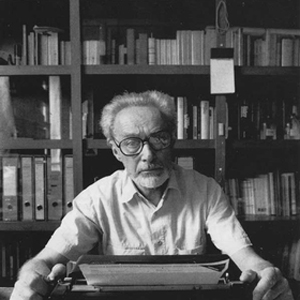An elderly man sits alone in a room, his memory so faulty he must refer to notes stuck to pieces of furniture in order to determine what they are. He is constantly observed by various surveillance devices, including perhaps the novel itself, which is described as a 'report' on more than one occasion. He could be a war criminal in the Hague, a patient in a care home, an asylum inhabitant. He appears to be filled with an implacable sense of guilt, yet he also feels the victim of a cosmic injustice. Who is he? We might well ask. Paul Auster's latest novel is perhaps his most cinematic yet, for better or worse. Indeed, it's hard to stop the film references rushing in: Memento, The Truman Show, Blade Runner. It also may be his most political work yet, though I suspect its implications will, for the most part, remain opaque. If the current American administration were more subtly Machiavellian, rather than obtuse and blundering, it's likely this novel would be more successful, as it seems convinced that cloak-and-dagger intrigue is the precondition for (or necessary consequence of) brutality. As a contemporary parable, however, Travels in the Scriptorium ultimately ends up somewhat like its protagonist: guilt-ridden, self-important and amnesiac.
'Mr Blank', our predictably Beckettian anti-hero, has little to entertain him. Two piles of photographs and papers provide the only material distraction, whilst odd visitors occasionally turn up in reassuring or menacing guises. Mr Blank refers to the typewritten reports on his desk: they speak of odd places the Confederation, Ultima, the Alien Territories yet he is convinced he lives in the early 21st century in a country called the United States of America. What help he has in solving this riddle appears in the form of a tender and affectionate middle-aged woman named Anna, who says enigmatic things about the treatment 'working' whilst feeding him multicoloured pills.
Frustratingly for us, the myriad characters that flit across the pages don't let us in on many of the secrets regarding Mr Blank's incarceration. Towards the end a lawyer arrives and tells him he's suspected of all manner of unpleasant crimes, but we are ultimately left dangling. The manuscripts in Mr Blank's room, often of a science fictional bent, tell of another world and another time, but reveal little of his own. But clearly this is all part of Auster's plan. At one point Mr Blank throws down one of the scripts in disgust the story is unfinished. The reader is thus presumably supposed to share in the guilt of the monstrous Mr Blank for demanding some narrative structure (the particular story-within-the-story that frustrates Mr Blank is of course written by a character by the name of John Trause, who previously appeared in Auster's 2004 novel, Oracle Night).
This is yet another Auster novel that plays up the figure of the writer, stroking it and flattering it as if it were a rare beast, full of irony and wonder, just waiting to show you how clever he (and it's just about always a he) can be. But it's not clear that all this textual self-referentiality has much more to recommend it now than it did when Cervantes did it (and a lot better) in the 15th century. It's hard not to suspect that beneath all the attention-seeking look, it's a book that talks about writing! there's a certain fear of being taken for something other than an eminently literary writer; a pulp novelist, say, or a writer of admirably compulsive genre fiction. Auster both plays up to and fears his middle-class, middle-brow audience, throwing in enough sentiment, coincidence and chance to keep the fear of rigorous abstraction at bay, whilst bowing his head knowingly to writers whom he admires so much he borrows many of their scenarios, whilst (rather caddishly) stripping them of their formal invention (Beckett, Borges, Nabokov).
The scriptorium of the title refers to a room in a monastery for the copying, writing, or illuminating of manuscripts and records. Auster merrily trots through his own monkish writer's paradise, repeating certain fragments that take his fancy, splashing some pretty colour here and there. Even though the novel may ostensibly be some kind of commentary on contemporary moral dilemmas (how to treat a war criminal, perhaps? The ethics of surveillance?), it's business as usual for the doyen of shallow, if dextrous, contemporary fiction. Those who like their literary postmodernism slick, light and fluffy will have something new to read on the train. Everyone else can stick to Don Quixote.

